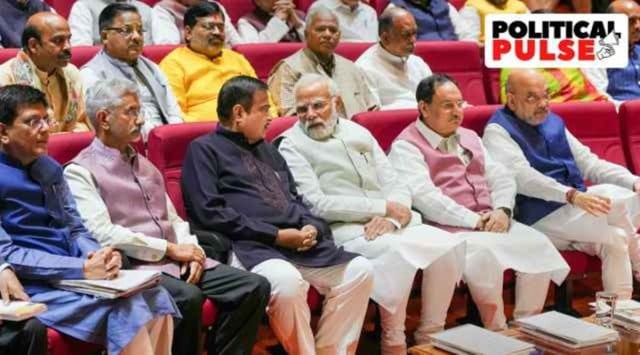The Modi Government is weighing its options on a controversial and far-reaching step: introducing “sub-categorisation” among Scheduled Castes (SC). This entails fixing a separate quota for some castes within the SC category ostensibly to ensure that a few “influential SC communities” don’t corner most of the benefits, The Indian Express has learnt.
The immediate provocation for this, sources said, is the demand by the Madiga community in poll-bound Telangana.

ExplainedWhy the note of caution
Unlike OBCs, there is no creamy layer for SCs and STs. Backwardness among SCs also draws from the practice of untouchability – sub-categorisation may sharpen differences within and bring in competitive affirmative action. Already, there is demand for OBC status from groups like Marathas, Patels and Jats. That’s why the move is fraught.
Of the nearly 17 per cent SC population in Telangana, Madigas account for nearly 50 per cent but they argue that most opportunities are cornered by another influential SC community Mala. So they have launched an agitation asking for a distinct quota for them. There are Mala-like examples in other states, too: the Paswans in Bihar or the Jatavs in UP.
Sources said key Ministries are discussing the proposal. If the government decides to go ahead with sub-categorisation of SCs in any state or across the country, it will need to amend Article 341 of the Constitution.
Sources said one option is the legal one: for the Government is to wait for a larger bench of the Supreme Court to be constituted – since the court has been requested to do so — and rule on the matter. Another suggestion is to go ahead with the amendment.
Significantly, the Government has already started such an exercise for OBCs – it set up the Rohini Commission whose report was submitted on July 31 on sub-categorisation of OBCs. That report is hanging fire given the political imperatives in the run-up to the general elections in 2024.
The issue of sub-categorisation among SCs has a fraught history.
Story continues below this ad
In 2004, a Constitution Bench of the Supreme Court struck down an Andhra Pradesh law for sub-categorisation of SCs; in 2020, a five-judge bench of the SC held that the state has the power to do so but requested the Chief Justice to refer the matter to a bench of seven or more judges. That is still pending.
States like Haryana in 1994, Punjab in 2006 and Tamil Nadu in 2008 moved to bring about sub-categorisation within their SCs but all these are on hold pending the SC decision.
The latest on this front happened in Karnataka in February this year, when the Bommai government passed a resolution to sub-categorise SC quotas. When contacted, then state Law Minister J C Madhuswamy told The Indian Express: “The matter is pending with the Centre now.”
Way back in 2006-07, the Centre had set up the National Commission to examine the issue of Sub-categorisation of SCs (NCSCSC) in Andhra Pradesh. It recommended sub-categorisation but the National Commission for Scheduled Castes (NCSC) did not agree.
Story continues below this ad
According to an affidavit filed in the SC in March 2000, 14 states had disagreed and seven states had agreed on sub-categorisation in their replies to a query from the Centre.
A section within the Government, sources said, has endorsed the idea arguing that there is data to back the claim that certain communities within SCs get a bigger share of the benefits.
Another argument in favour is that such an amendment will be applicable to not just SCs but also Scheduled Tribes (STs) and address concerns when new entries are made in the list of SCs and STs, like in Jammu and Kashmir.
However, sources said, some have urged caution and red-flagged key concerns.
Story continues below this ad
One, the issue of federalism – should it be done by the states or the Centre? As per the SC ruling, states are empowered to do this so a Central amendment would be seen as encroaching on the power of the states. Also, if sub-categorisation is allowed, issues like creamy layer among SCs may arise and sharpen divides within.
































